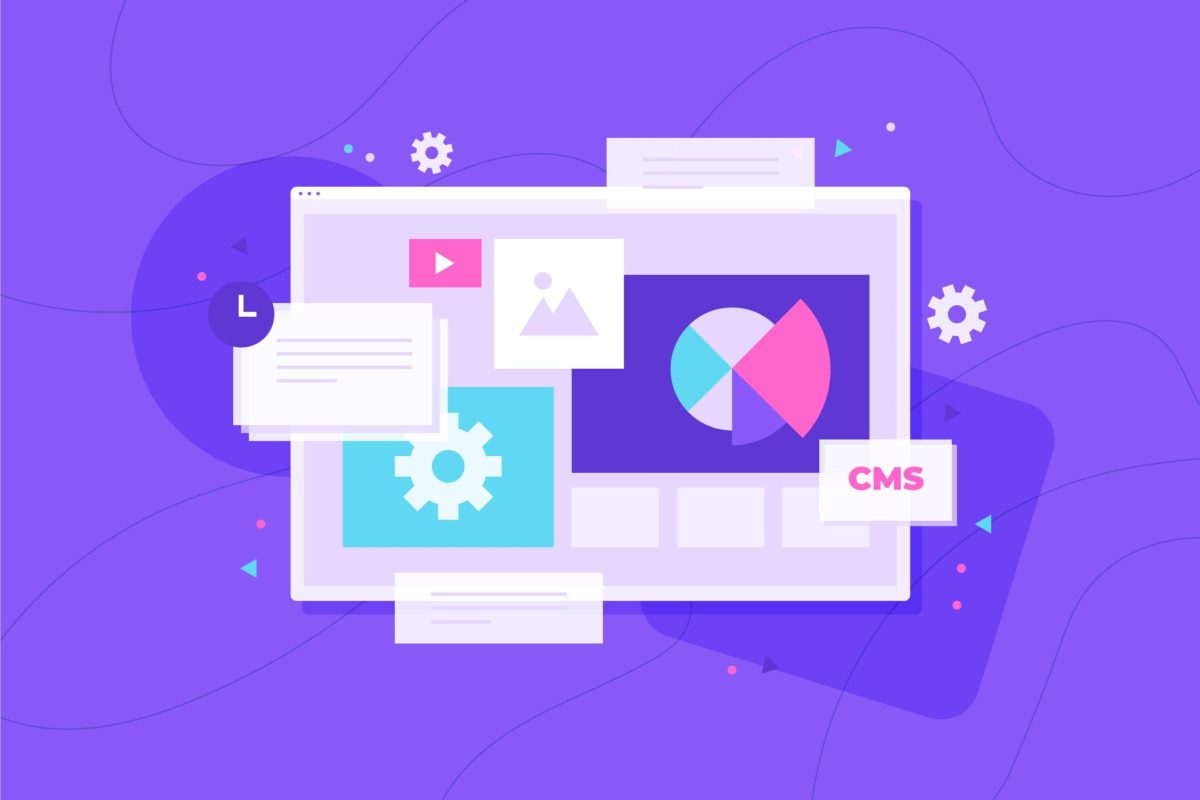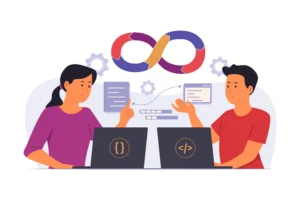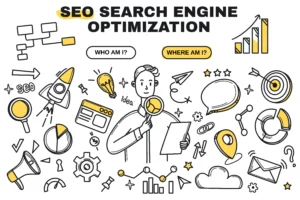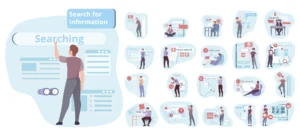If you have ever thought about creating your own website but felt overwhelmed by coding, design tools, or the cost of hiring a developer, then you are not alone. Many beginners face the same challenge. This is where WordPress comes into the picture. WordPress is a powerful and beginner-friendly platform that allows anyone to build a professional-looking website without touching a single line of code. It is flexible, affordable, and trusted by millions of individuals, small businesses, and even large organizations across the world. Today, WordPress powers more than 43% of all websites, which shows just how popular and reliable it has become.
In this detailed beginner’s guide, we will take you step by step through everything you need to know about WordPress. You will learn what WordPress actually is, the different types of websites you can create with it, how themes and plugins work, the difference between WordPress.org and WordPress.com, and the reasons why WordPress continues to be the first choice for so many. Finally, we will also walk you through how to start building your own WordPress website.
What is WordPress?
At its core, WordPress is an open-source Content Management System (CMS). A CMS is software that helps you create, manage, and publish content on the internet without needing advanced technical skills. WordPress began in 2003 as a simple blogging platform, but it quickly evolved into a complete website builder. Today, it is used not only for personal blogs but also for eCommerce stores, corporate websites, portfolios, forums, and much more.
One of the most important reasons behind the popularity of WordPress is its simplicity. You do not need to be a programmer or web designer to use it. The platform comes with a user-friendly dashboard where you can easily write blog posts, upload images, customize design layouts, and install extra features. WordPress also supports thousands of themes and plugins that extend its functionality. This means that with just a few clicks, you can transform a simple website into something highly professional and unique.
What is WordPress Used For?
The true strength of WordPress lies in its flexibility. It is not restricted to just one type of website, which makes it appealing to people from all industries and professions. Here are some common uses of WordPress:
- Personal Blogs: Many people start their journey with WordPress by writing blogs. You can easily create a space to share your experiences, hobbies, or opinions.
- Portfolios: Artists, writers, designers, and photographers often use WordPress to showcase their work in a professional online portfolio.
- Business Websites: Small and large companies alike can create a strong online presence with custom pages for services, testimonials, and contact forms.
- Online Stores: With plugins like WooCommerce, WordPress becomes a complete eCommerce platform where you can sell products, manage inventory, and accept payments securely.
- Membership Websites: WordPress allows you to restrict content and create paid memberships, which is great for courses, tutorials, or exclusive communities.
- News Platforms: Many online magazines and news outlets run on WordPress because it is reliable and easy to manage for multiple authors.
- Nonprofit Websites: Charities and NGOs use WordPress to raise awareness, collect donations, and promote their causes.
- Forums & Communities: Plugins make it possible to build forums and online communities where people can interact.
- Educational Websites: Learning Management Systems (LMS) plugins transform WordPress into an e-learning platform where you can sell courses and manage students.
- Event Websites: Perfect for conferences, concerts, or weddings, with features like event calendars and ticket sales.
- Job Boards: Companies can create job portals where employers post listings and applicants apply online.
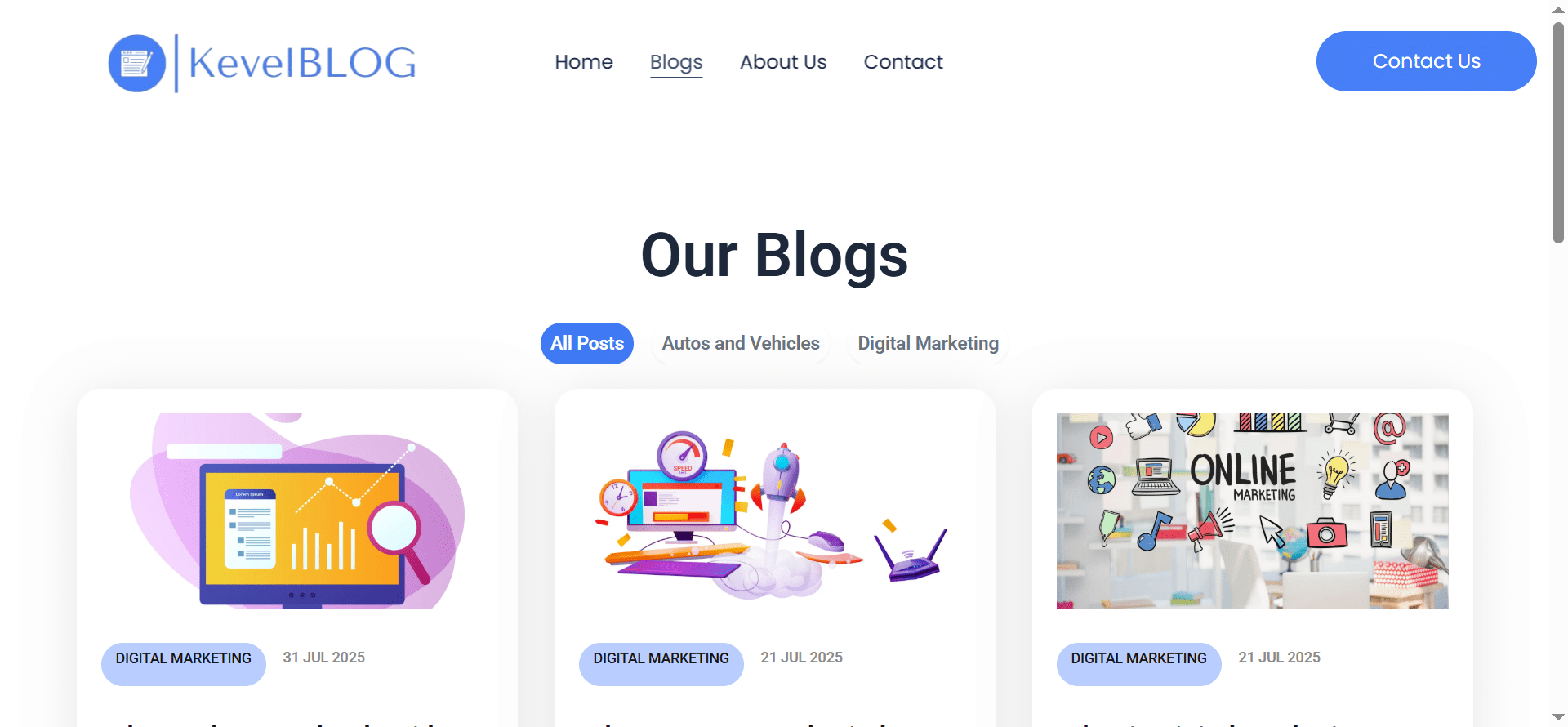
As you can see, WordPress is not limited to one use. If you can imagine a type of website, chances are it can be built on WordPress.
Examples of Websites Using WordPress
When people first hear about WordPress, they often assume it is only for bloggers or small websites. However, the reality is very different. Some of the biggest and most trusted names in the world use WordPress as their platform of choice. For example, NASA uses WordPress to provide scientific data and educational content in a way that is easy to access and navigate. Disney General Entertainment Press also relies on WordPress to manage a large amount of multimedia content, showcasing the flexibility of the platform. On the eCommerce side, brands like Nalgene use WordPress with WooCommerce to sell their products online effectively.
These examples prove that WordPress is not just for small projects. Whether you are an individual running a personal blog or a global brand managing millions of visitors, WordPress can scale to meet your needs.
WordPress.org vs WordPress.com
A common source of confusion for beginners is the difference between WordPress.org and WordPress.com. While both use the same core software, they are very different in terms of control and flexibility.
- WordPress.org is the self-hosted version. You download the free software from WordPress.org and install it on your own web hosting account. This gives you complete freedom to customize your website with any theme or plugin you like. You can also run ads, set up an online store, and have total ownership of your content. The only costs are web hosting and a domain name.
- WordPress.com, on the other hand, is a hosted service. It takes care of the technical side like hosting and updates, but it comes with restrictions. You cannot install custom themes or plugins on the free plan, and monetization options are limited.
If your goal is to create a professional website with room to grow, WordPress.org is the better choice. It gives you more control, more customization options, and more opportunities for monetization. WordPress.com may be suitable for beginners who just want a simple blog without worrying about hosting, but it is not ideal for business websites.
What Are WordPress Themes?
A WordPress theme controls the appearance and layout of your website. Think of it as the design template that determines how your site looks to visitors. With WordPress, you can switch themes with just a few clicks, completely changing your site’s design without affecting your content.
There are more than 11,000 free themes available in the official WordPress theme directory. These are great for beginners who want to start quickly without spending money. In addition, premium themes are available on marketplaces like ThemeForest. These often come with advanced customization options, built-in features, and dedicated support.
A popular example is the Astra theme, which is lightweight, fast, and highly customizable. Whether you want a simple blog or a complex business website, Astra and similar themes give you full design flexibility.
What Are WordPress Plugins?
While themes control the design, plugins add functionality to your website. A plugin is like an app for WordPress—it extends what your site can do. For example:
- If you want to improve search engine rankings, you can install an SEO plugin like All in One SEO (AIOSEO).
- If you want to turn your site into an online store, you can use WooCommerce.
- If you need contact forms, galleries, or membership systems, there are plugins for that too.
Currently, there are over 59,000 free plugins in the official WordPress repository, plus thousands of premium options. This ecosystem makes WordPress incredibly powerful, because you can customize your site for any need without hiring a developer.
Why Use WordPress?
There are countless website builders available today, but WordPress remains the most popular for good reasons. Here are some of the biggest benefits:
- Beginner-friendly: The dashboard is intuitive, making it easy to create pages, write posts, and upload images.
- Quick setup: You can install WordPress and have a basic site running in minutes.
- Cost-effective: The software itself is free, and you can build a professional site at a fraction of the cost of custom development.
- Open-source freedom: With WordPress.org, you own your content and your site. There are no restrictions on customization.
- SEO-friendly: WordPress is designed with SEO in mind, and plugins make optimization even easier.
- Customizable: Between themes and plugins, you have endless design and functionality options.
- Scalable: WordPress grows with you, from a personal blog to a large eCommerce store with thousands of products.
- Community support: Millions of users and developers contribute to the WordPress community, so you’ll always find help and tutorials.
- Multilingual: You can create websites in different languages with translation plugins.
These benefits explain why WordPress powers websites for bloggers, entrepreneurs, nonprofits, and large corporations alike.
How to Create a WordPress Website (Step-by-Step)
Starting a WordPress website may seem complicated, but the process is actually straightforward. Here’s a beginner-friendly roadmap:
- Buy web hosting and a domain name – Choose a reliable hosting provider like Bluehost, SiteGround, or Hostinger. Your domain is your website address (example.com).
- Install WordPress – Most hosting providers offer one-click WordPress installation.
- Choose and install a theme – Pick a theme that matches your style or industry. Customize it to fit your brand colors and layout.
- Install essential plugins – Add SEO plugins, contact forms, security tools, and performance boosters.
- Create important pages – Start with key pages like Home, About, Contact, Services, and Blog.
- Publish content – Write your first blog posts or upload your products if you’re running a store.
- Promote your website – Use SEO, social media marketing, and email campaigns to attract visitors and grow your audience.
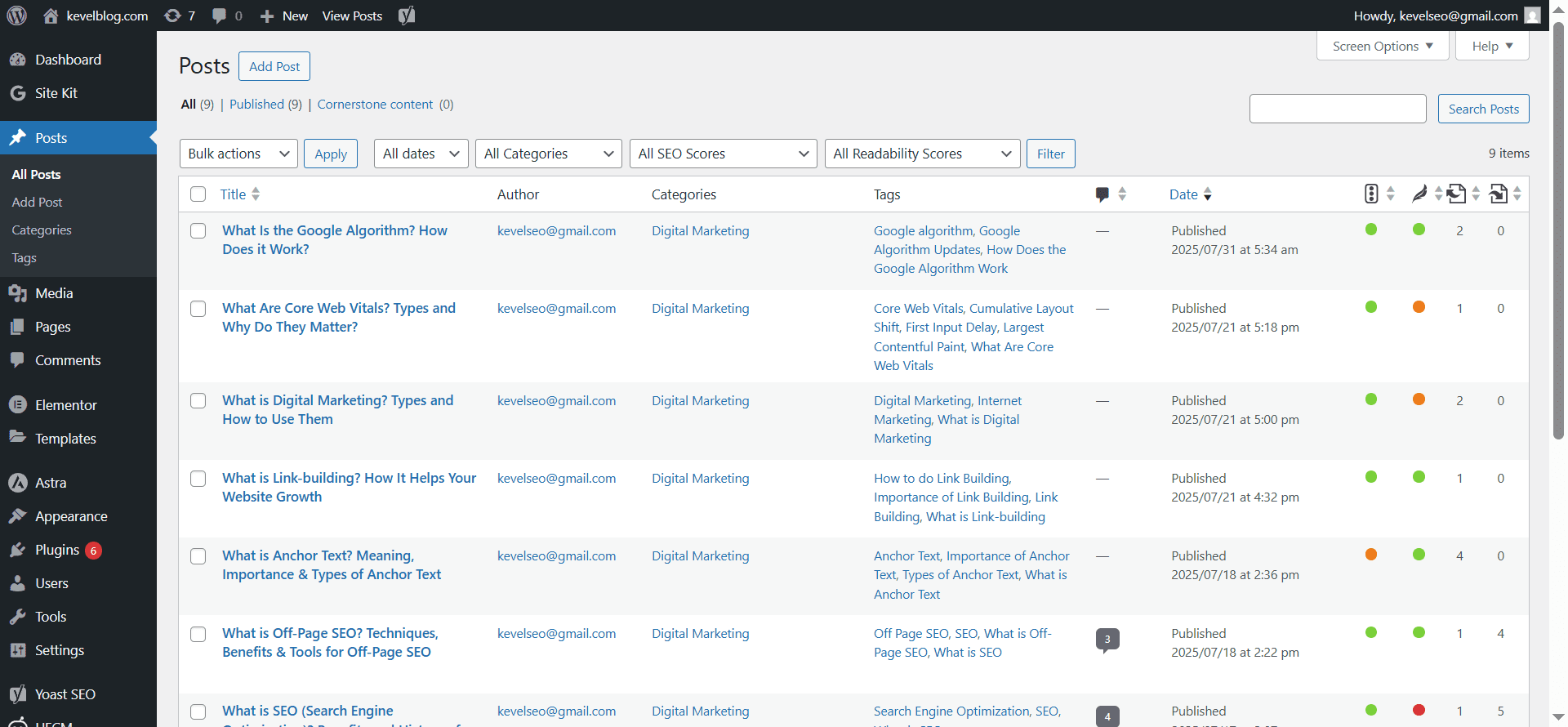
By following these steps, you can launch a fully functional website within a few hours.
Additional Resources
If you want to continue learning, there are plenty of resources that make working with WordPress even easier:
- Beginner tutorials on WordPress basics
- Guides on editing menus, categories, and navigation
- SEO resources tailored for WordPress
- Step-by-step checklists for launching your first site
Conclusion
WordPress is more than just a blogging tool—it’s a powerful and flexible platform that empowers anyone to build a professional website. From blogs and portfolios to online stores and business websites, WordPress can handle it all. The choice between WordPress.org and WordPress.com depends on your goals, but for maximum flexibility and long-term growth, WordPress.org is the best option.
By using themes and plugins, you can design a unique site that reflects your style, while also adding the features you need to grow online. With its ease of use, affordability, and endless customization, it’s no wonder WordPress continues to dominate the internet. If you are ready to take your ideas online, there’s no better time to start with WordPress.
Frequently Asked Questions
What is WordPress and what is it used for?
WordPress is a free content management system (CMS) that helps you create and manage websites without coding. You can use it for blogs, business websites, online stores, portfolios, news portals, and more.
Is WordPress free to use?
Yes, WordPress software is completely free. However, if you use WordPress.org, you will need to pay for web hosting and a domain name. WordPress.com has free and paid plans with different features.
What is the difference between WordPress.org and WordPress.com?
WordPress.org is self-hosted and gives you full control over your website with unlimited customization. WordPress.com is a hosted platform with limited features unless you upgrade to premium plans.
Do I need coding skills to use WordPress?
No, you don’t need coding knowledge. WordPress has an easy-to-use dashboard, themes, and plugins that let beginners build websites without technical skills.
What are WordPress themes and plugins?
Themes control the design and layout of your site, while plugins add extra features like SEO tools, contact forms, or online store functionality.
Is WordPress good for SEO?
Yes, WordPress is SEO-friendly. It has clean code, customizable permalinks, and supports powerful SEO plugins that help improve search engine rankings.
Can I create an eCommerce store with WordPress?
Absolutely. Using the WooCommerce plugin, you can turn your WordPress site into a full-featured online store with product listings, carts, and secure payments.
How do I start a WordPress website as a beginner?
To start, buy a domain name and hosting, install WordPress, choose a theme, add plugins, create pages, and publish content. Many hosting providers offer one-click WordPress installation.

